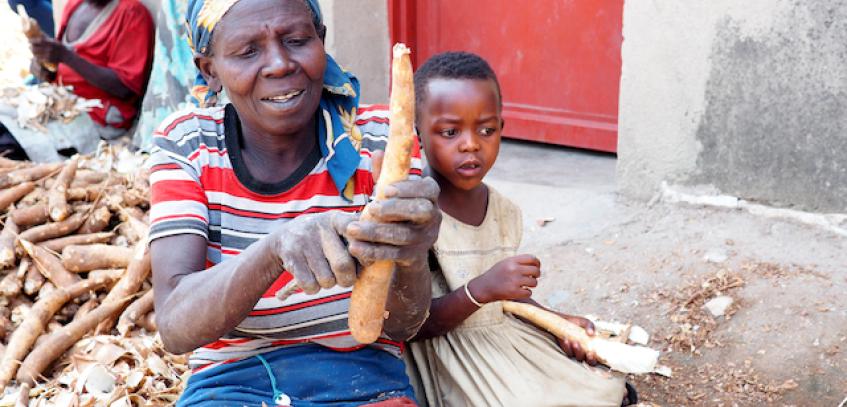The African Union Agenda 2063 recognizes human capital development as critical to deliver the vision of an integrated, prosperous and peaceful continent and therefore investments in Africa’s people is fundamental. Africa was estimated to have a population of 1.25 billion in 2018 and is the fastest urbanizing continent, with a growth rate of more than 2.6 percent. There is a large youth population that presents a potential demographic dividend that, if adequately leveraged with the right investments, could contribute to accelerating sustainable and equitable development.
The African continent has made great strides in addressing food security and nutrition challenges over the years. Stunting has for example declined from a continental average of 38% in 2000 to 30% in 2016 at the same time Africa investments in its people has continuously improved, the under- five mortality has reduced by more than 50 percent between 1994 to 2019 and fertility rates have declined from six (6) to four (4) children per woman. However, the continent continues to experience challenges of undernutrition – stunting, underweight, low birth weight, micronutrient deficiencies, overweight and obesity, and diet-related non- communicable among others. In 2018, about 676 million people representing 52% of the population were food insecure in Africa.
The 2019 International Conference in Population Development (ICPD25) set the stage for policies and practices that countries can use in population and development planning. The African Union Commission, United Nations Population Fund (UNFPA) and Government of Germany hosted the series of dialogues in advancing the attainment of demographic dividend. Food security and nutrition was the theme for the second dialogue series onGovernment−Government Policy Dialogues on Demographic Diversity and Dividends, the “4D Series”.
Demographic dividend, as defined by the United Nations Population Fund (UNFPA) means, "the economic growth potential that can result from shifts in a population’s age structure, mainly when the share of the working-age population (15 to 64) is larger than the non-working-age share of the population (14 and younger, and 65 and older)". Demographic dividend occurs when the proportion of working people in the total population is high because this indicates that more people have the potential to be productive and contribute to growth of the economy.
The interrelation between food security and demographic dividend is symbioticin that food security is necessary for a healthy population and a healthy population is necessary for economic development.
While delivering the keynote address Dr Margaret Agama- Anyetei, the acting Director of Health and Humanitarian Affairs Directorate at the African Union Commission noted that population growth rates continue to pose a development challenge to development efforts on the continent and especially in the area of food security and nutrition and if well harnessed, could see Africa make a larger impact on its socio-economic development. Giving an example of an advocacy tool being led by the Commission titled Cost of Hunger in Africa Study, which has so far been implemented in twenty-one African Union Member States has been useful in highlighting not only the impact of nutrition on health but also on education and productivity – impact throughout the lifecycle of an individual.” The Cost of Hunger findings have been key in advocating to policy and decision makers the need to prioritize nutrition not only to addressing the health challenges but for the socio-economic development of countries,” she underscored.
The dialogue series identified recommendations to fight food insecurity and hunger such as empowering women and youth who are joining the work force in making their own food consumption decision thus fostering access to economic opportunities. Sound legal interventions including laws, regulations and policies were recommended as interventions to promote food safety and health choices for consumers.
Scaling-up investments in food production sustainability by addressing climate change was also a noteworthy recommendation. “There is a key requirement that agricultural intensification leap to a sustainable state, and not to unsustainable systems leading to climate change, land loss and desertification. Greening our agriculture is hugely important,” Noted Fergus Sinclair of the World Agroforestry, Kenya
Prioritizing food security and nutrition for all is important. Governments and partners should invest into key areas to reap the demographic dividends and fulfill the Sustainable Development Goal of the United Nations that seek to end hunger, achieve food security and improve nutrition, and promote sustainable agricultural targets and the African Union Agenda 2063 whose goal number one is set towards ensuring healthy and well-nourished citizens.








